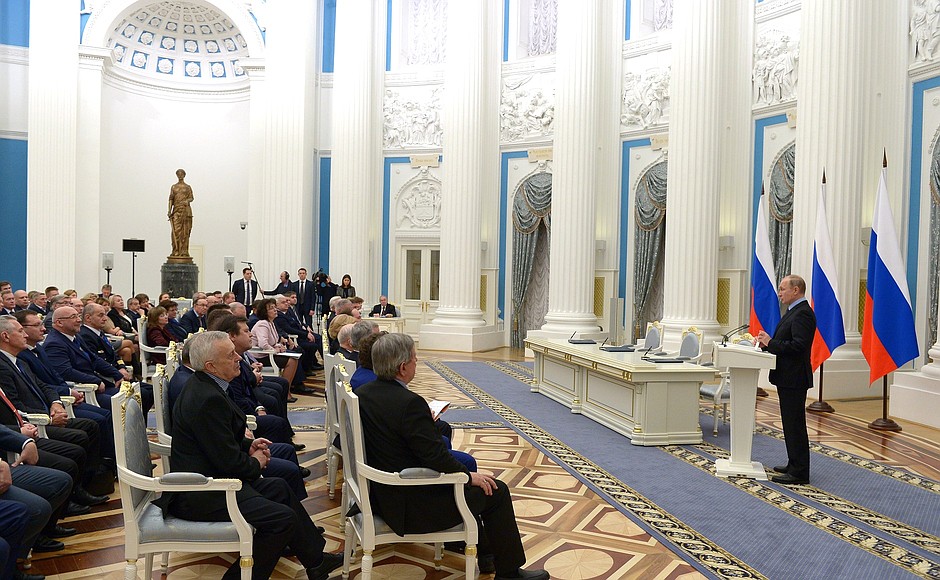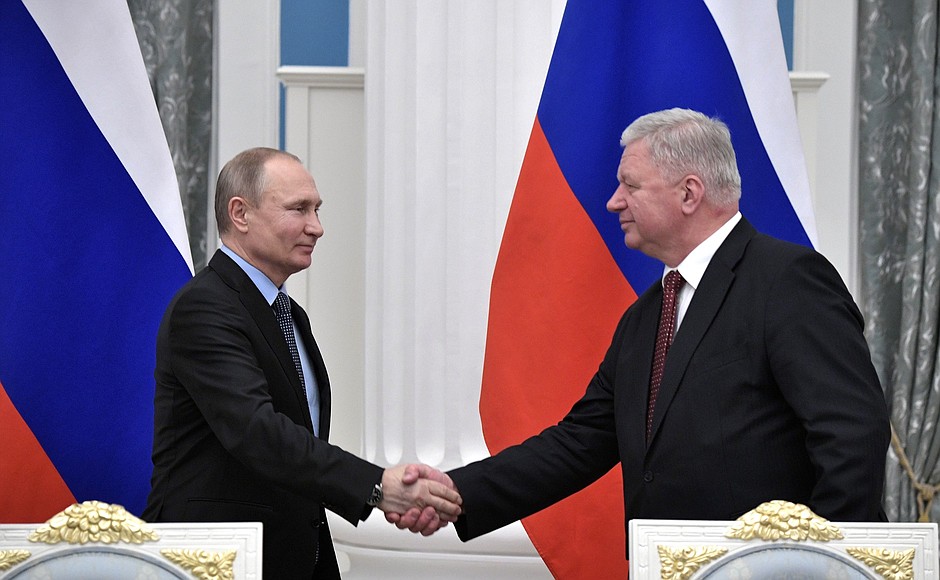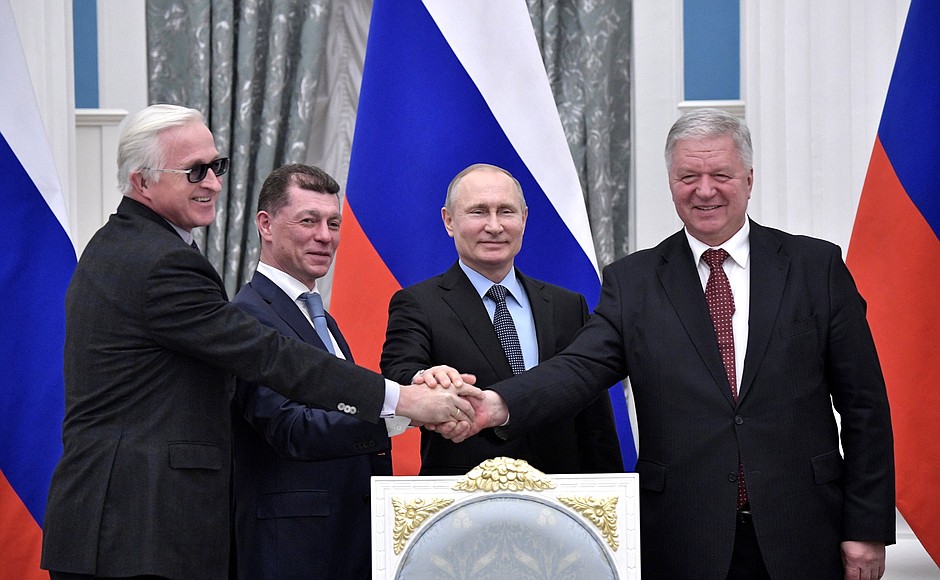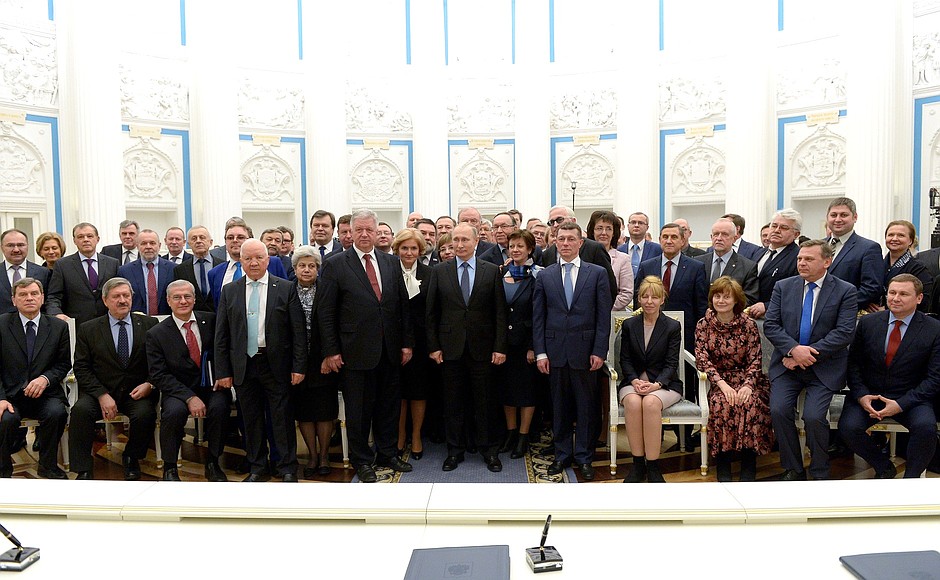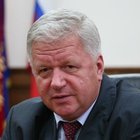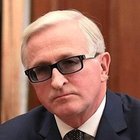The document was signed by Chairman of the Federation of Independent Trade Unions of Russia Mikhail Shmakov, President of the Russian Union of Industrialists and Entrepreneurs Alexander Shokhin, and Minister of Labour and Social Protection Maxim Topilin.
The agreement sets forth the principles of regulating social, labour and associated economic relations at the federal level for the next three years.
* * *
President of Russia Vladimir Putin: Good afternoon, colleagues,
Today we are signing the General Agreement between national associations of trade unions, national associations of employers, and the Russian Federation Government. This document sets forth basic principles governing social and labour relations for the next three years and directly concerns the interests of over 70 million Russian citizens employed in various economic sectors.
I would like to thank the Tripartite Commission for Regulating Social and Labour Relations for its effective work in preparing the general agreement and for its active participation in solving issues of significance for the labour market.
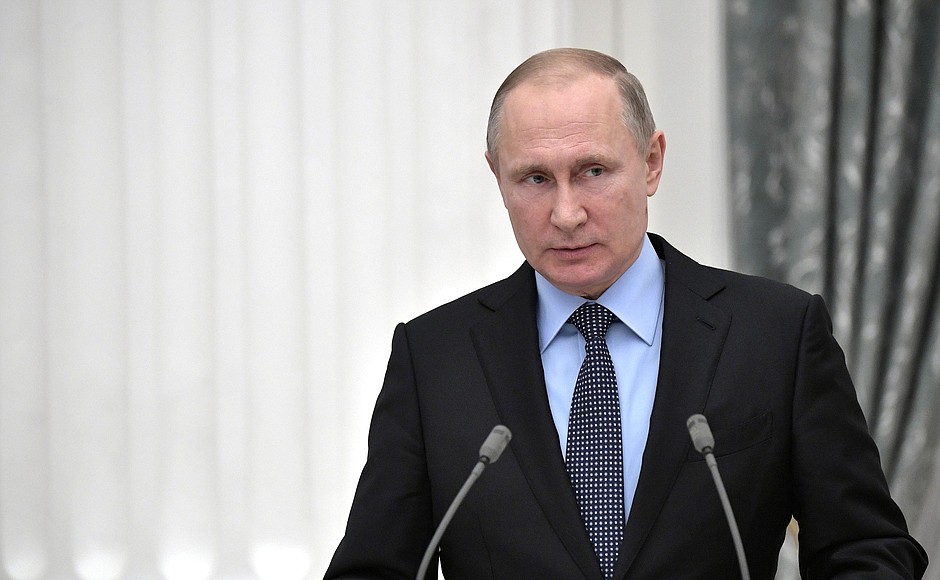
Today the recession period for the national economy is over, and in several sectors, including industry and agriculture, we can see growth, and we face the common goal of providing long-term sustainable growth and placing the economy in general on a positive trajectory and, as a matter of principle, boosting the real wages of our citizens.
We must remember that economic achievements do not come of themselves but are the result of people’s labour. Economic efficiency and increased competitiveness undoubtedly depend on good working conditions, enhanced productivity, modern technology and equipment, as well as the improvement of human capital, which is becoming an increasingly important factor.
Workers must have an opportunity to fully realise their potential through their work, to apply their knowledge, skills and experience profitably and productively, to enhance their professional skills and have an opportunity to advance, and to learn new competencies needed in their field promptly or, better still, proactively. At the same time, everyone must feel protected in terms of social guarantees, security and labour safety, and must also receive fair pay for their work.
I would like to remind you that it has been decided to equalise the minimum monthly wage and the subsistence wage, which is 11,163 rubles, on May 1. This decision has been taken largely at the prompting of our leading trade union association. Mr Shmakov and I met to discuss this issue. As you can see, we are implementing it.
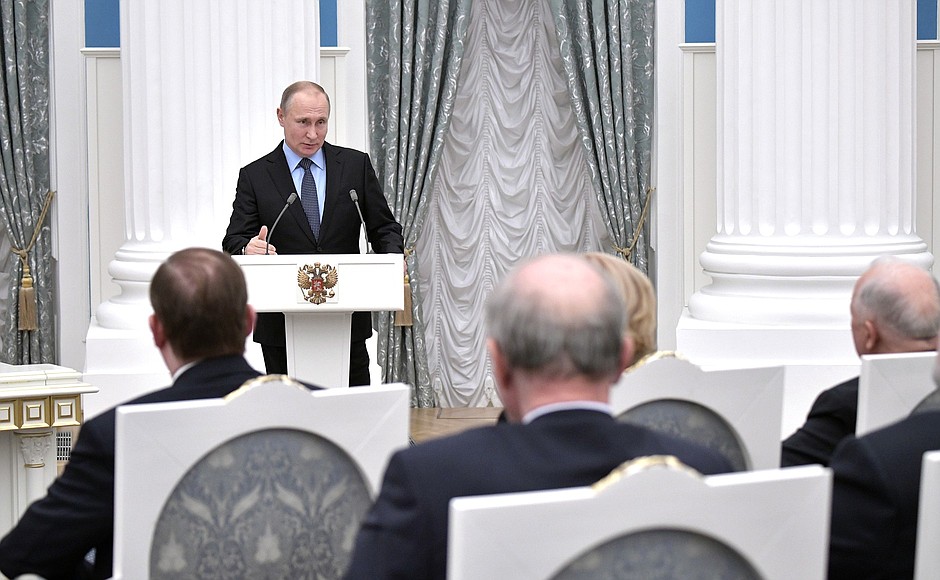
I hope that our colleagues in the State Duma will promptly adopt the necessary amendments to legislation. As I said, we must ensure the growth of real incomes and real wages for our people. This concerns both the public sector, where the government has been working consistently to attain this goal, and the commercial sector, because the competitiveness of our companies and their sustainable and forward-looking development depend directly on the creation of conditions for the workers’ self-fulfilment and on investment in their education, health, competencies and the quality of their life.
Enhancing economic efficiency through the development of labour potential is a comprehensive task that calls for a close interaction of society, business and the state and their readiness to balance their interests. I hope that the new General Agreement will provide a reference point for finding this balance, and that the implementation of this agreement by all parties, including the employers, the trade unions and the Government, will provide a positive example of a reliable social partnership.
In conclusion, I would like to thank you again for your hard work in the best interests of the country and the national economy.
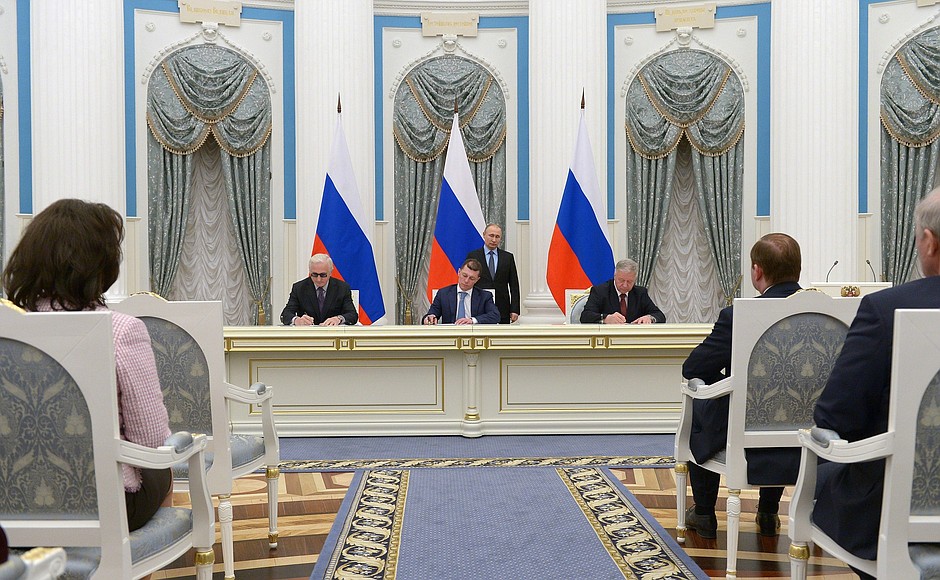
Thank you very much.
(The parties sign the General Agreement.)
Chairman of the Federation of Independent Trade Unions of Russia Mikhail Shmakov: Mr President, colleagues,
There is no doubt that the signing of the trilateral three-year agreement today is an important milestone in our efforts to promote social partnership in the country. I would like to highlight the President’s words when he said that this critical political decision, and also economic, of course, was years in the making. As early as on May 1, the minimum monthly wage will be equated to the subsistence wage, which is clearly a major step toward eliminating poverty. I strongly believe that the objectives that are set today, whereby by early 2020s an employed person will not live in poverty, can be achieved.
I would also like to say that as we develop the social partnership proactively, it would be desirable to have all three parties represented within social insurance funds. It is for this reason that both the employers’ associations and trade unions are represented in the Social Insurance Fund, while this is not the case for the Compulsory Medical Insurance Fund or the Pension Fund. I think that this can be done within the next three years.
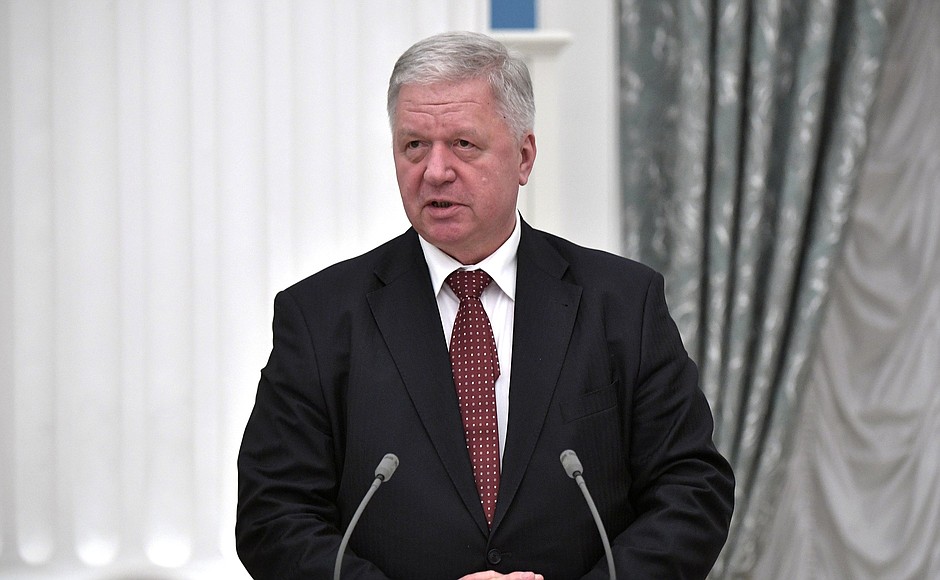
Thank you, Mr President for lending your active support to the joint trilateral work.
President of the Russian Union of Industrialists and Entrepreneurs Alexander Shokhin: Mr President, thank you for highlighting the importance of social partnership by attending the signing ceremony. I think that your presence here can be viewed not just as a sign of respect for the parties involved in the social partnership initiative, but also as proof of its effectiveness.
As you have justly emphasised, one of the main objectives of the social partnership between the Government, the employers and trade unions is to ensure that the Russian economy is competitive, and that Russia is competitive not just as an economy, but also as a jurisdiction and as a state, that its workers and people are competitive. We are working on it. I hope that the new three-year general agreement reflects the parties’ commitment to move in this direction.
I would like to say that social partners are ready not only to sit on the managing bodies of social funds but also to assume responsibility for the management of these funds. For example, [the management of] the Social Insurance Fund could be turned over to social partners, so that the Fund would operate on the principles of social insurance or social partnership.
We have reached many compromises during our discussions of a new general agreement. We have reached a new level in coordinating our actions. One of such coordinated decisions is an agreement on the need to recognise the companies’ social investments in the interest of regions, municipalities, workers and the state as a whole.
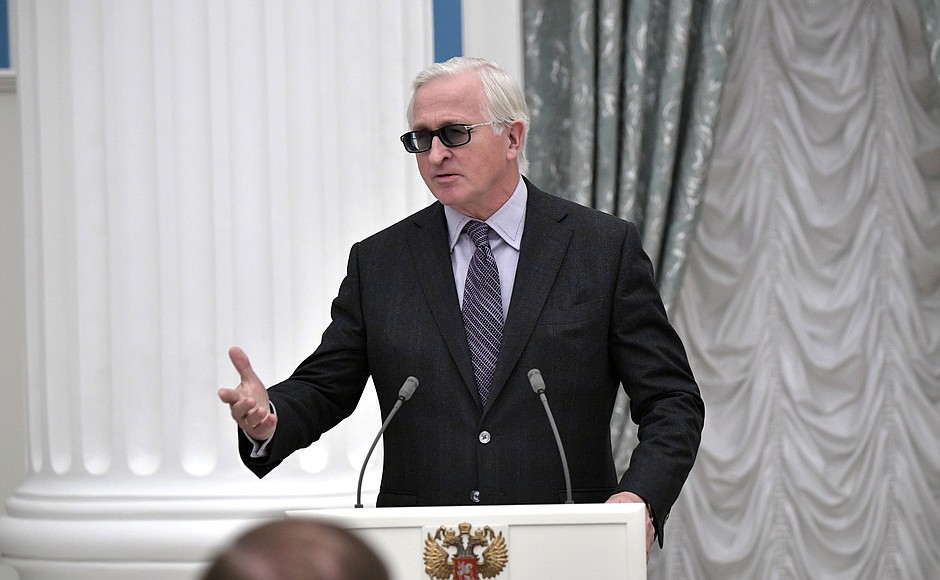
In particular, we believe that the companies’ social investments should be given more attention in terms of taxation. Taxes are often based on the companies’ net profits. It is not very easy for the municipal authorities to finance the construction of schools, outpatient clinics or stadiums. We have formulated proposals on ways to find a compromise in this sphere, including with the tax and budget systems.
In other words, there are many examples of forward movement in the mutual recognition of our interests, and they are reflected in the General Agreement.
Thank you for your cooperation.
Vladimir Putin: Colleagues, this is what I would like to say in conclusion.
I know how difficult this job is and that it is always accompanied by debates, which are based on considerations of principle and are often heated. This is what I want to say in this connection. I am very pleased to see that you were working towards a common result in a highly responsible way, despite any differences in the process of searching for compromises, and that you knew you needed to balance your interests for the benefit of the nation. Both the trade unions, which represent the interests of workers, the business representatives and, of course, the Government respect and listen to each other. This is the only way to find the necessary solutions.
I would like to thank you for doing this and to congratulate you on the results achieved. Thank you.
